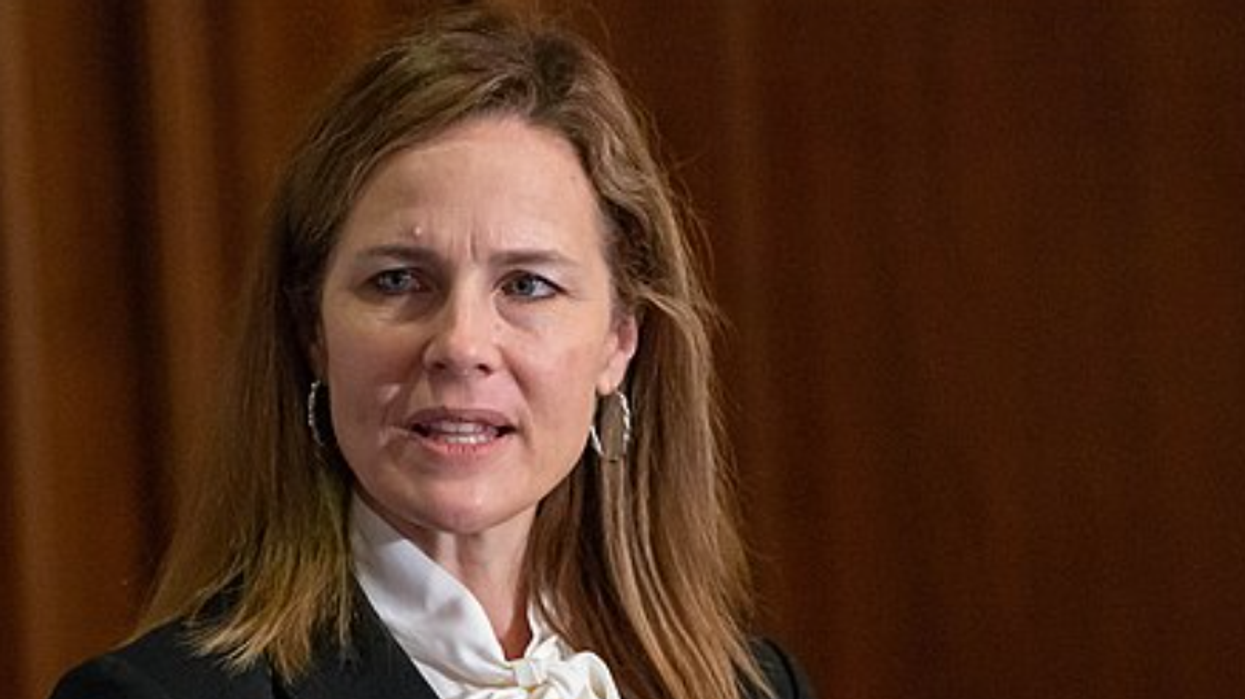Expert delineates 3 ideological SCOTUS blocs: Next president could 'tip the balance'

Office of U.S. Senator Roger Wicker / Wikimedia Commons
July 03, 2024 | 02:19PM ETFrontpage news and politics
The most recent term of the Supreme Court of the United States (SCOTUS) was undoubtedly huge for the conservative movement. But one legal expert is arguing that the next president will likely be able to firmly establish the direction of the Court for decades into the future.
In a Wednesday column for Bloomberg, Harvard Law professor Noah Feldman opined that the 6-3 conservative majority doesn't accurately depict the current state of the Supreme Court. He wrote that three separate blocs have emerged in the Roberts Court, with the three liberals (Justices Ketanji Brown Jackson, Elena Kagan and Sonia Sotomayor), three "arch-conservatives" (Justices Samuel Alito, Neil Gorsuch and Clarence Thomas) and three "centrist conservatives" (Justices Amy Coney Barrett, Brett Kavanaugh and Chief Justice John Roberts) constituting separate groups with distinct judicial philosophies.
Feldman's case is that the Court's conservatives — five of whom are direct alumni of the Federalist Society, with Roberts still having ties to the group — have already accomplished many longtime pet projects of Republicans, like overturning Roe v. Wade and implementing an absolutist interpretation of the Second Amendment. Now, Feldman argues that the conservatives are evenly split between justices out for conquest and justices who want to slow down.
READ MORE: 'Loss of trust': Growing chorus of federal judges speak out against 'out of step' SCOTUS
"The centrists don’t want the revolution to turn into a free-for-all, in which all well-established doctrines are open to being reversed just because the extreme conservatives don’t like the outcomes that would be reached by following existing law," Feldman wrote. "That’s one reason the centrists didn’t take the bait offered by conservative lower courts and ban mifepristone, a medication used for miscarriages and abortions. It’s why, in the Rahimi decision, they acknowledged that it would be genuinely crazy to allow people with domestic violence protection orders against them to buy guns."
The United States v. Rahimi case Feldman mentioned was one example of Barrett and Roberts siding with the Court's three Democratic appointees, concerning a defendant arrested for domestic violence who argued he still had a right under the Constitution to keep and bear arms. And the three centrist conservatives all sided with the liberal justices in the Moyle v. United States decision that allowed physicians in Idaho to perform emergency abortions despite the Gem State's total abortion ban.
"Barrett, in particular, emerged this term as the most thoughtful and least predictable of the conservative centrists," Feldman wrote. "Remarkably, Barrett may be in the process of becoming the closest thing to a swing vote on the current court: someone who genuinely listens to the arguments, thinks about the law, and will come out where her conscience and her legal judgments take her."
Feldman added that because Justices Alito and Thomas are 74 and 76 years old, respectively, those two justices would be the most likely to create vacancies on the Court over the next four years. And should President Joe Biden win reelection, that would mean liberals would have a 5-4 majority, creating new opportunities for legal crusaders to undo some of the Court's more controversial decisions in the future.
READ MORE: 'The gun argument could lose': Expert predicts 'major loss' for 2A absolutists in SCOTUS
"Before liberals despair entirely of the Supreme Court for at least a generation, they should keep in mind that things can change fast. Had Hillary Clinton won the 2016 presidential election, the bench would now have six liberals and three conservatives," he argued.
"As the conservative revolution crests, it begins to be possible to imagine what is going to be on the other side of it," he continued. "Whoever becomes the next president could tip the balance of the court in one direction — or the other."
Click here to read Feldman's full column (subscription required).
READ MORE: 'This is a really stark break': SCOTUS conservatives split by 'raging' philosophical debate